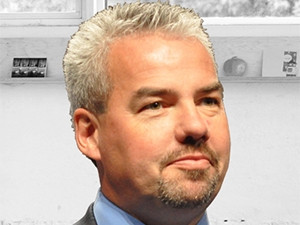
The three major building blocks of a "smart digital world" are smart government, smart enterprise, and smart consumers, said Jean Turgeon, VP and chief technologist for software-defined architecture at Avaya, at the Avaya Technology Forum in Dubai on Tuesday.
Smart governments must implement digital infrastructure for their citizens, and use this infrastructure to protect public safety while complying with regulations, Turgeon explained. Smart enterprises use analytics to effectively deliver the services their users require, while maintaining accessibility and availability for these users, he continued. A smart consumer is equipped with smart devices and apps, he added.
This integration of "smart" solutions is essentially enabled by the "device mesh" of consumers' various gadgets and the numerous machines deployed by governments and enterprises, which connect to exchange user information, location and analytics, Turgeon noted.
"The city of the future... it's very highly likely is going to be packed with sensors, continuously working," echoed Ahmed Kamal, senior sales engineer at Avaya.
"The device mesh is about us getting connectivity to the services we need, in various means," said Turgeon, suggesting this "mesh" could potentially be used to detect when a user enters a particular area, who they are, and what services they are likely to need at that time.
The 'Internet of Me'
Smart cities need to be not only automated, but personal and intuitive, agreed Kamal.
Governments and enterprises need to deploy systems that collect and analyse information everywhere, and respond to the information in personalised ways to form the "Internet of Me... taking the Internet of things concept and customising it towards a citizen," he explained, noting users do not generally care about who a smart city is helping besides themselves.
The city needs to notice and protect "my things... my house, my family, my kids, my phone, my car, my street, my building, my life," he elaborated.
Cities also need to be intuitive in that citizens must be able to have a "relationship" with the city as a "single UI proxy broker" they can access when they need to interact directly with the state for any reason, Kamal continued.
Yet these advancements are not viable or wise without a secured infrastructure that safeguards citizens' data and privacy, noted Turgeon, adding governments and enterprises could take further steps to prevent citizens from being personally hacked; for example, through free WiFi networks.
Share